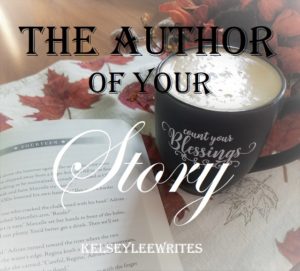As I continue reflecting on my Bible study through Esther, another theme that came up over and over was that God uses broken people to accomplish His will. I don’t tend to think of Esther as a broken person; in fact, I tend to think of her as a strong, courageous woman. Brokenness and strength don’t really seem to go together in my mind. One thing the authors of the Bible study emphasized was that the characters are normal people, full of flaws and brokenness, and we should not idolize them as the heroes of the story. Instead, God is the true hero of the story, working through the lives of broken people to accomplish His will in the earth.
Let’s start with a very obviously broken character: King Ahasuerus (Xerxes). He throws a 180-day party to show off his riches, and then another 7-day long banquet where every man could indulge as much as his heart desired. King Ahasuerus is a prideful and gluttonous man. And then, when everyone is good and drunk, he wants to show off his queen before them, and when she refuses to be objectified, he listens to the counsel of his wise men and has her banished from the kingdom. He basically divorces her. This whole scenario was one bad decision on top of another. But God took what was meant for evil and turned it around for something good (see Genesis 50:20). He used all of this to place Esther exactly where she needed to be when Haman’s devious plot took effect. God worked through a very imperfect and broken king in order to show His strength and protection for His people.
But Esther was also a broken character. She was taken from her family and forced into the king’s harem. That’s rather traumatic! And on top of that, she learns that her people are going to be put to death. When Mordecai asks Esther to go before the king, her response was not immediate courage and determination.
Then Esther spoke to Hathach and ordered him to reply to Mordecai: “All the king’s servants and the people of the king’s provinces know that for any man or woman who comes to the king to the inner court who is not summoned, he has but one law, that he be put to death, unless the king holds out to him the golden scepter so that he may live. And I have not been summoned to come to the king for these thirty days.” Esther 4:10-11
The book of Esther doesn’t give insight into the thoughts and feelings of the main characters, but I can surmise, based on Esther’s words, that she was wrestling with fear. And who of us wouldn’t be afraid? It’s a human emotion to experience fear when threatened. And Esther had a choice on how to respond to that fear. She could protect herself, or she could face her fear and keep going.
This is where I see a beautiful picture of two broken people helping one another choose God’s ways. Mordecai is also broken; he’s had his adopted daughter ripped from his home. He’s been separated from her for five years. And this sweet father-figure has walked by the court of the harem every day to see how his sweet girl is doing (see Esther 2:11). I can imagine a father wanting to preserve his baby girl, but instead, Mordecai calls her to courage.
Then Mordecai told them to reply to Esther, “Do not imagine that you in the king’s palace can escape any more than all the Jews. For if you remain silent at this time, relief and deliverance will arise for the Jews from another place and you and your father’s house will perish. And who knows whether you have not attained royalty for such a time as this?” Esther 4:13-14
Through Mordecai’s encouragement, Esther determines to go before the king, despite whatever fears she may face. And she calls on her people to stand with her.
Then Esther told them to reply to Mordecai, “Go, assemble all the Jews who are found in Susa, and fast for me; do not eat or drink for three days, night or day. I and my maidens also will fast in the same way. And thus I will go in to the king, which is not according to the law; and if I perish, I perish.” So Mordecai went away and did just as Esther had commanded him. Esther 4:15-17
Broken people, standing together. This is a reminder to me that we need one another in the body of Christ. When my strength and resolve is weak, I need my brothers and sisters in Christ to stand with me, just as I need to be there for others who are weak. God uses broken people to help one another.
Finally, God again uses King Ahasuerus to serve His purposes.
The king’s heart is like channels of water in the hand of the Lord; He turns it wherever He wishes. Proverbs 21:1
He spares the life of his queen, gives an edict allowing the Jews to defend themselves, and places Mordecai as second to the King, and God worked through Mordecai to bring about good for His people in Persia.
The story of Esther is a story of broken people being used by God. In Esther and Mordecai’s cases, they were willing vessels for the Lord to work through. In King Ahasuerus’s case, God directed his ways in order to accomplish His will, even though the king was not a follower of God.
The Bible is full of broken people being used by God, just like our world is full of broken people being used by God. We can take comfort in knowing that God is moving, even through our brokenness. And we can be encouraged knowing that even those who don’t follow God can be directed by His hand, even if it seems like there’s no possible way for God to work through them. God is bigger than anyone or anything that tries to stand in His way.
The question we’re left with is how will we respond? We are broken people. God is ready to work in our hearts and lives to accomplish His will through us. Are we willing to surrender everything to Him, to be willing vessels to accomplish His will? Can we say with Esther, “thus I will go… and if I perish, I perish”? May we increasingly learn to trust our loving Father’s hand!
With love,
Kelsey



